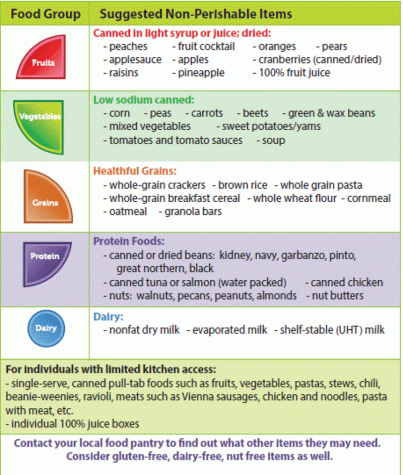KANSAS CITY, Mo. – Donating to food pantries and food banks is a way for neighbors to help neighbors, reduce food waste and aid families in need, says Londa Nwadike, extension food safety specialist for the University of Missouri and Kansas State University.
While donations are greatly appreciated at food pantries, Nwadike said, be mindful of what you donate. “Many times, people don’t want to throw food away, so they donate it, but it is always important to ensure that when donating food, we also think about it from a safety perspective,” she said.
“Many of the people who consume food from food pantries are from groups that are more vulnerable to foodborne illness – the young, old, pregnant and sick,” Nwadike said.
Nwadike recommends NOT donating the following foods:
- Home-canned or home-prepared foods.
- Opened or repackaged foods.
- Food in damaged packages or dented cans.
- Food past its labeled “best by” date.
- Spoiled, moldy foods.
“Always check with the food pantry or food bank before donating fresh fruits and vegetables, frozen foods and any food that requires refrigeration to ask if they are able to safely handle those foods,” she said.
Nwadike suggests donating nonperishable items like these:
- Fruits that are canned in light syrup or juice or are dried, such as peaches, applesauce and pineapple.
- Canned vegetables that are low in sodium, such as corn, peas and carrots.
- Healthful grains, such as whole-grain crackers, brown rice and granola bars.
- Protein foods, such as canned tuna or salmon (water packed), canned chicken and nut butters.
- Nonperishable dairy products, such as evaporated milk, shelf-stable milk and nonfat dry milk.
Aside from donating food, there are other ways to help food pantries, Nwadike said. “Food pantries also appreciate monetary donations so they can buy what they need the most in bulk, and they also appreciate volunteer time,” she said.
More information
- “Donating Safe and Nutritious Food to Food Pantries and Soup Kitchens,” (downloadable fact sheet).
- “Working Together To Reduce Food Waste,” (downloadable fact sheet).
- MU Extension Food Safety website.
